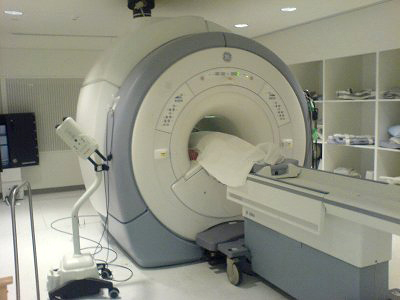MRIs reveal what you think of others


Your own thoughts betray you, or at least they could. Cornell University neuroscience researchers are able to determine what you think of others by scanning your brain.
Cornell's press office announced the findings of a study by neuroscientist Nathan Spreng and his colleagues today. The team analyzed functional MRI (fMRI) data to reveal how the human brain perceives others by encoding their personality traits. The human brain creates a distinct personality profile for everyone that can be identified by observing changes in blood flow to the medial prefrontal cortex (mPFC), an area of the brain that functions to plan social interactions, the study says.
Volunteers were asked to consider how specific people might react to situations after studying those individuals' personality traits. By analyzing the brain activation patterns, researchers were consistently able to recognize which person a volunteer was thinking about. That profiling process has provided new insights into how the brains of people who have disorders such as autism function differently. In those cases, the encoding fails.
"Prior research has implicated the anterior mPFC in social cognition disorders such as autism and our results suggest people with such disorders may have an inability to build accurate personality models," said Spreng. "If further research bears this out, we may ultimately be able to identify specific brain activation biomarkers not only for diagnosing such diseases, but for monitoring the effects of interventions."
fMRI technology has already been deployed in courtrooms as a lie detector, can be used to predict how well someone will learn, and is being used to more accurately map the human brain. Neuroscience has come a long way since the dubious study phrenology, which alleged uncovered mental faculties by measuring the skull.
That's notable, because phrenology became the basis for social darwinism and discrimination.
While it's unlikely that neuro research will produce the same consequences in this age, the obvious question is are your brain waves considered to be private? Who has a right to know what you're thinking?
(Image credits: Cornell University, University of Oxford)
Related on SmartPlanet:
This post was originally published on Smartplanet.com